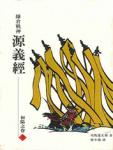Chapter 1 The standard-bearer of Japanese national literature
Writer Shiba Ryotaro was born in August 1923 in Nishikanda Town, Naniwa District, Osaka City.His father's name is Fukuda, and his real name is Fukuda Sadaichi.
My grandfather ran a pastry business and my father was a practicing pharmacist.
Shortly after his birth, due to poor health, he was fostered in Kitakatsuragi County, Nara Prefecture, near his grandfather's home.In the following years, Ryotaro Shiba often mentioned that his hometown in his heart was Nara, not Osaka.The life experience in the ancient capital seems to be related to the writing of a large number of historical novels later.
At the age of seven (1930), he entered Osaka Namba Shiokusa Elementary School.The primary school days seemed to be lacklustre, often making troubles with playmates everywhere.In the past six years, he has won the "Academic Excellence" award, but has never received the "Excellent Conduct" award.
At the age of thirteen (1936), he entered the private Shanggong Middle School.I lived an ordinary life for the first two years, and from the third year onwards, I stopped by the city library to read after school every day, and did not return home until eight or nine in the evening.The reading habit lasted until graduation from college.Here, I read all the books in the library, and finally even read the fishing book seriously.
At the age of eighteen (1941), he entered the Osaka Foreign Language School.The writer Chen Shunchen entered the school one year earlier.Since then, the two have been dating for half a century.
Due to family financial constraints, he was unable to apply for a university in Tokyo (a year later he recalled that he hoped to study Chinese at Waseda University); he had to finish his studies at the Department of Mongolian Language and Literature at Osaka Foreign Language School in his hometown.Although I have no interest in Mongolian, I gradually became interested in Russian literature and the biographies in "Historical Records" while studying, and gradually became concerned about the Chinese peoples outside the Great Wall.
At the age of 20 (1943), the war expanded, and the measures to delay the recall of students were cancelled, and he was incorporated into the "Nineteenth Chariot Company" in Hyogo Prefecture.The following year, he was transferred to the "Manzhou" (Northeast of China) Army Tank School for training.After eight months of training, he was sent to the "First Company of Chariots" in Mudanjiang.
At the age of 22 (1945), he retreated from "Manchuria" to Japan via South Korea, and was discharged from the army with the end of the war (August 15).War experience made him think seriously about the essence of "patriotism" and the issue of life and death; he also expressed doubts about the technological level of Japan's modernization.
At the age of 23 (1946), he joined the "New Japan News Agency" as a reporter, responsible for covering university news and religious news.
At the age of twenty-five (1948), the "New Japan News Agency" ended its operations; it was changed to the Kyoto branch of the "Sankei Shimbun Agency".
From then on, until he resigned at the age of 38 (1961), in 13 years, he started as a reporter, and was later promoted to manager of the "Cultural Department" and deputy manager of the "Publishing Bureau".
At the beginning of entering the newspaper, he planned to be thirty years old, and then resigned to write novels.But things backfired. It is not easy to write literary works (although "writing" is a profession).In 1955 (32 years old), Daikichi Terauchi, a member of the Pure Land sect who was interviewed, strongly encouraged him to start writing novels, which turned him into a professional writer.
In 1956 (at the age of 33), his debut novel "The Illusionist of Persia" won the "Talk Club Award".This is also the beginning of his pen name "Sima Ryotaro".According to his own explanation, "Liao" means "Liao is unattainable", and "Sima" is Sima Qian, the author of "Historical Records".That is to say, "I am far inferior to Sima Qian".
In 1960 (at the age of thirty-seven), the historical novel "Owl City" based on the Japanese "ninja" won the "(42nd) Naoki Award".
In Japan, the "Naoki Award" and "Akutagawa Award" are like "certificates" for novel writers.His award-winning age is relatively early among many writers; this also means that he can enter the world of professional writing early.
Until his death at the age of seventy-three (1996), Shiba Ryotaro left a huge writing achievement, which was also highly praised.In 1993, he was awarded the "Medal of Culture", the highest honor in the Japanese cultural circle."Taiwan Journey" published in 1994 also caused a period of discussion in Taiwan.

